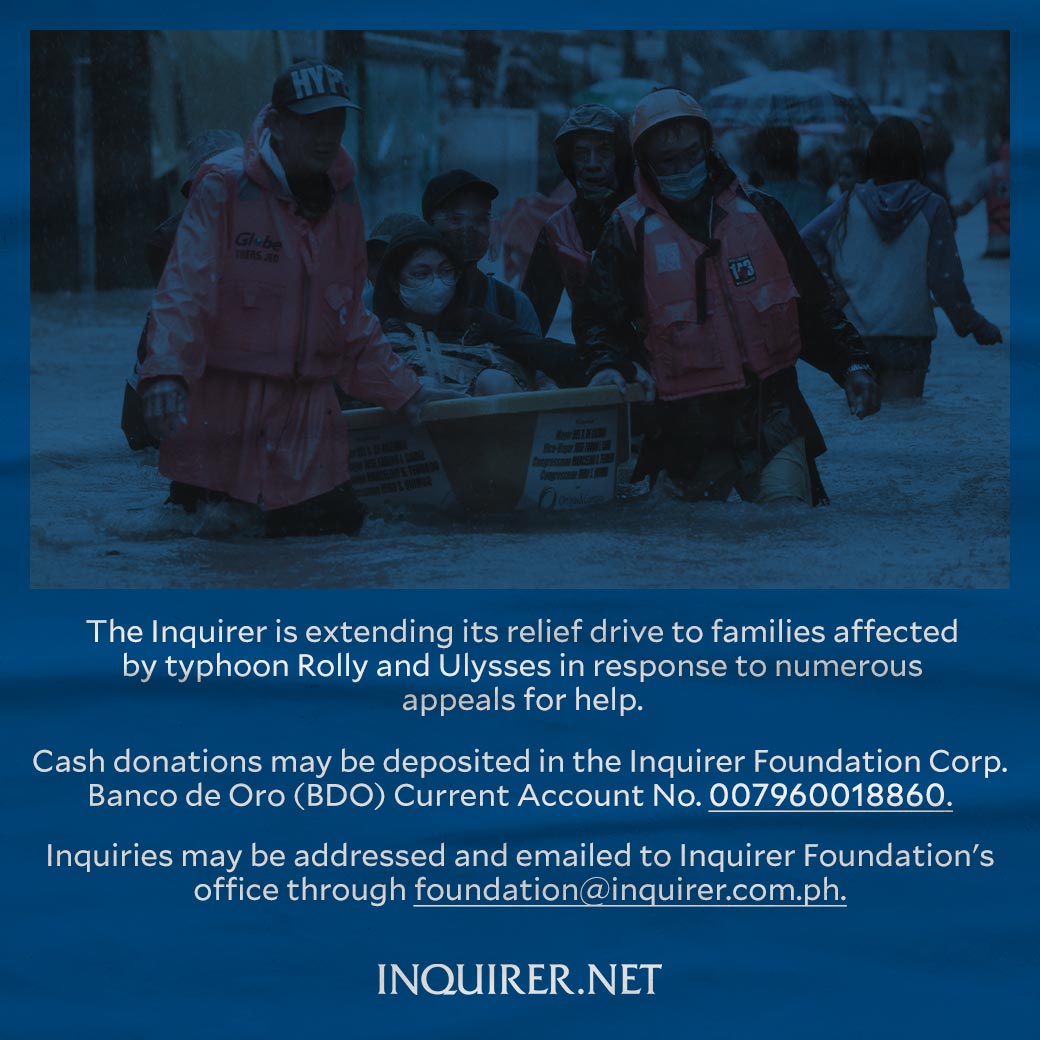Anticipatory disaster governance
A few years ago, I was with friends visiting from abroad, proudly touring them around Marikina City. We ended up for lunch in a restaurant at the Marikina riverside. We sat at the third floor to get a better view of the Marikina River. I noticed a black horizontal line painted along the wall of the restaurant. When I asked the waiter, he told us that was the water level during the Typhoon “Ondoy” flood. I was astonished. I experienced “Ondoy” three kilometers away from the river, but now I realized one would have to be at the riverbank at the height of the flood to appreciate just how high and devastating the flood was.
If “Ondoy” caught the people by surprise in September 2009, all the more that “Ulysses” did the other night. As I write this, the Marikina River is now at 21.8 meters above sea level, surpassing the 21.5-meter level of “Ondoy.” Once again, the people of Marikina and other similarly affected low-lying riverside areas in Metro Manila, Bulacan, Rizal, and Central Luzon have swung into a more frenzied level of survival action.
What has made “Ulysses” so much more devastating is that the ability of families and communities to help themselves has been dissipated by recent typhoons—“Quinta,” “Rolly,” “Siony,” “Tonyo”—on top of COVID-19. In Marikina City, one of the most disaster-prepared cities nationwide, Mayor Marcy Teodoro has been prompted to call on the private sector to assist the city government in evacuating endangered residents. Meanwhile, the national government’s capacity to fill the disaster response gap has suffered because of COVID-19 drawdowns as well as shortsighted cutdowns in the disaster response capacity of the government.
Is escape possible from this repetitive disaster cycle? In Chapter 8 of the book “Reinventing Government” (1992), David Osborne and Ted Gaebler gave us the idea of “Anticipatory Government: Prevention Rather Than Cure.” They emphasized prevention versus crisis management, long-term budgeting versus short-term budgeting, accrual versus cash accounting. In the latter, the costs of future obligations of an organization are treated as expenses, not when they are actually paid. They suggest enabling foresighting and strategic planning via mechanisms like “Futures Commissions” composed of citizens.
Think about it: City mayors do not have to put on their red jackets and rush to the scene of an impending disaster every time. This is because anticipatory cities have identified their most serious and most probable risks, and have determined how these risks need to be responded to. This response mode can cover a whole range of man-made and natural impending and actual disaster situations. It can involve clearing and repairing roads and bridges that have been damaged by earthquakes, rescuing residents isolated by floods, or setting up and operating evacuation centers.
The first important point is that the city government itself does not have to take the disaster preparation and response actions. These can be outsourced through formal contracts signed with the private sector. The private sector would have the specialized engineering, medical, emergency, and other equipment and teams to deal with the risks and actual disaster situations. The second important point is that the contracts covering these private sector services can be signed well before any impending disaster looms on the horizon.
Come to think of it, what can a city mayor do in the event of an impending or actual disaster? Without the preparation and prepositioning of the relevant human power, equipment, and resources, there will be much “heroic” actions that the mayor can take, but these will be mostly tactical and symbolic.
Anticipatory disaster governance looks like an impossible dream in the Philippines, given the penchant of politicians to prioritize and privatize government budgets for personalistic political interests and designs rather than the long-term needs of the people. Such privatization tendencies, in turn, trigger the highly bureaucratized process of ensuring that the procurement of goods and services is not marked by graft and corruption, which half-paralyzes government. But the youth of the land may do better during their watch.
There is nothing wrong about a president or a city mayor not being on ground zero, if anticipatory disaster governance is in place. But the absence of both is the biggest disaster of all.
——————
doyromero@gmail.com

















